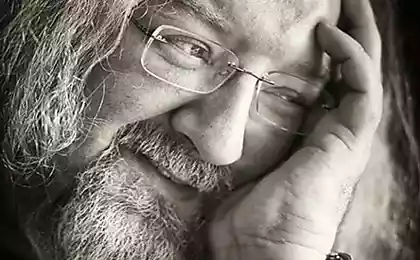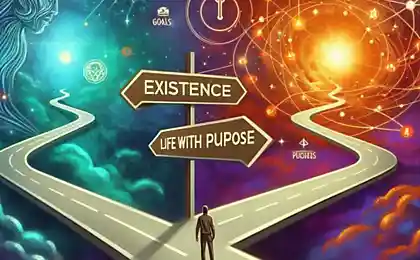193
How to find your favorite business and enjoy life: 3 questions

Introduction. Many people spend years, and sometimes all their lives, trying to find the business that will not only bring income, but also give real pleasure. Some change professions, others are thoroughly planted in a routine, and someone, it would seem, finds his calling, but suddenly loses interest in him. What's the secret? Is it really possible to find a field where work and hobbies merge into one, and the daily routine brings joy? Actually, possible. In this article, we’re going to look at a simple yet powerful 3-question method that helps you determine what you really want to do and why it’s fun.
Why it is important to find a favorite business
According to the American Psychological Association (APA), job satisfaction is directly correlated with overall happiness and mental health. People who are engaged in a business consistent with their values and interests are less likely to suffer from burnout, more likely to achieve success and better cope with stress. And it’s not just the salary: even high pay does not save you from chronic apathy, if the activity does not coincide with your underlying motivations.
But how to find a balance between material wealth and internal satisfaction? How to determine what kind of business will bring pleasure, and not become another “check” in the endless list of duties? Let’s take a look at the 3-question method and how to put it into practice.
The essence of the “method of 3 questions”
The 3 Question Method is a self-reflection technique that allows you to step by step closer to understanding your true interests and goals. The beauty is that there are no complex psychological terms or multi-step schemes. There are only three questions you can ask yourself in a quiet environment, maybe with a pen and paper to fix your thoughts.

Question 1: What would I do if I didn’t have to make money? ?
This question immediately frees us from the main barrier – the material one. Yes, we all need money, but it’s often financial worries that keep us from thinking, “What do I really want to do?” Try to imagine that you already have a stable income sufficient for a comfortable life. What would you do in that case?
- Why it matters: Sometimes we don’t even realize how deep the financial side is undercutting our dreams. By removing this filter, we can look more honestly at our own instincts and talents.
- Council: The list can include anything from drawing and cooking to writing a scientific article or growing rare plants. Do not be ashamed of the most fantastic ideas.
Question 2: What would I want to do if I knew I would succeed? ?
The second barrier is fear of failure. Often we give up dreams because we think: “Who needs me in this field?”, “I do not have the appropriate education”, “I will not be able to compete with professionals” and so on. But imagine that your success is guaranteed. Which path would you choose without fear of failure?
- Why it matters: The fear of failure often subtly kills interest before we act. By mentally “turning off” this fear, we can discover a strong inner craving for once-rejected ideas.
- Council: Take your time on this. Often it is here that the forgotten dreams of childhood or adolescence, which were buried under the arguments about the “realities of life”, “pop up”.
Question #3: What am I willing to do even if no one supports or praises me? ?
The third barrier is the dependence on external evaluation. We are used to looking for approval from others: colleagues, friends, relatives. But the real “own” business is something that we are willing to do, even if we do not receive likes, praise, and no recognition at all. It's an indicator of true passion.
- Why it matters: If we like to do something without regard to external incentives, then there is a deep personal motivation in this business.
- Council: Try to analyze whether you have a hobby, project or hobby that you enjoy regardless of other people’s opinions.
How to interpret the results
When you answer all three questions honestly, you may have either one bright answer or a whole bunch of different ideas. It is important to understand what is repeated or crossed in these lists. For example, if you wrote that you “want to make music if you didn’t need money” (the first question), and “would definitely make music if success was guaranteed” (the second question), and are ready to “do it even without praise” (the third question) – this is a very strong signal that music can be something that brings you deep pleasure and perhaps is your “vocation”.
However, do not wait for instant revelation. Sometimes the answers can be very general: “I want to help people”, “I love to travel”, “I am interested in scientific research”. In this case, you need to dig deeper: what specific area? Scientific expeditions? Volunteering in a social project? Medical research? Traveling for documentaries?

Combination of vocation and reality
Finding a field that genuinely fires you, you may be faced with the question: “How to make a stable source of income out of this?” After all, our romantic dreams do not always fit into the format of a successful career. It is important to understand that there are several ways:
- Working in parallel: Continue the main work, gradually developing a new direction until it begins to bring sufficient income.
- Changing careers gradually: Get the necessary skills, education, portfolio and connections to become competitive in a new field.
- Incorporate vocation into current activities: Perhaps your passion for educating people can be realized in the form of trainings, webinars, consultations, even if your official position is a manager or an engineer.
How to overcome barriers on the way to your favorite business
Even after realizing that “I want to do this,” we sometimes experience fear, lack of support, or lack of knowledge. How can we overcome these barriers?
- Learn gradually: Many online courses, books, free materials will help you to start exploring a new field without a large investment.
- Look for like-minded people. Community and interest clubs are a great place to discuss ideas and find friendly support.
- Set short-term goals: Break the long way into several stages so as not to burn out. Every small victory will be inspiring.
- Be realistic with your finances: Don't quit your job if you don't have plans and resources; it's better to start as a hobby or "side project."
- Accept the possibility of errors: No one is immune to failure. Your mistakes are experiences that tell you how to adapt best.
Why the pleasure of life depends on calling
When we look at positive psychology research (NCBI), we see that feeling meaningful and engaged in activities (called flow states) directly affects happiness and life satisfaction. When we do what we love, the brain activates the reward center, releasing endorphins and dopamine, so we have more energy and desire to develop further.
In addition, calling helps to feel that we are not living according to someone else’s script. We begin to appreciate each day as it brings us closer to our goals and fulfills our personal mission. Life ceases to be a routine, there is real inspiration in it.
Conclusion
Finding a favorite business is both an exciting and responsible journey. The 3 Questions Method is just one way to sift through your true desires and grope for what can be a source of satisfaction and inspiration. By going through three simple but profound reflections—what you would do without money, what you would choose to do with a guarantee of success, and what you would do without praise and support—you will come closer to understanding your true aspirations.
Of course, the process is not limited to these questions: then you will have the stage of market research, skills development, resource search and, possibly, restructuring your lifestyle. But if you end up on a path that resonates with your inner values and passion, the effort will pay off many times over. In any case, going to a favorite business is better than staying in the gray zone of doubts and compromises with yourself.

Remember: Happiness is not a sudden “prize,” but a state we create by doing what inspires us. So if you want to enjoy life, start with the inner questions. The answers you find will be the foundation for major changes leading to a meaningful and joyful life.
How to Get Rid of Time Eaters: 11 Radical Actions
Movies for reflection: 20 films with an unpredictable plot























